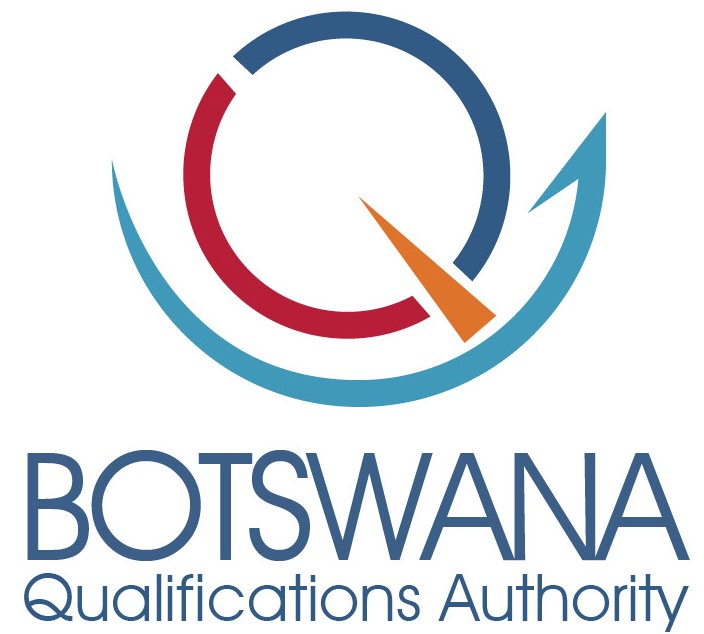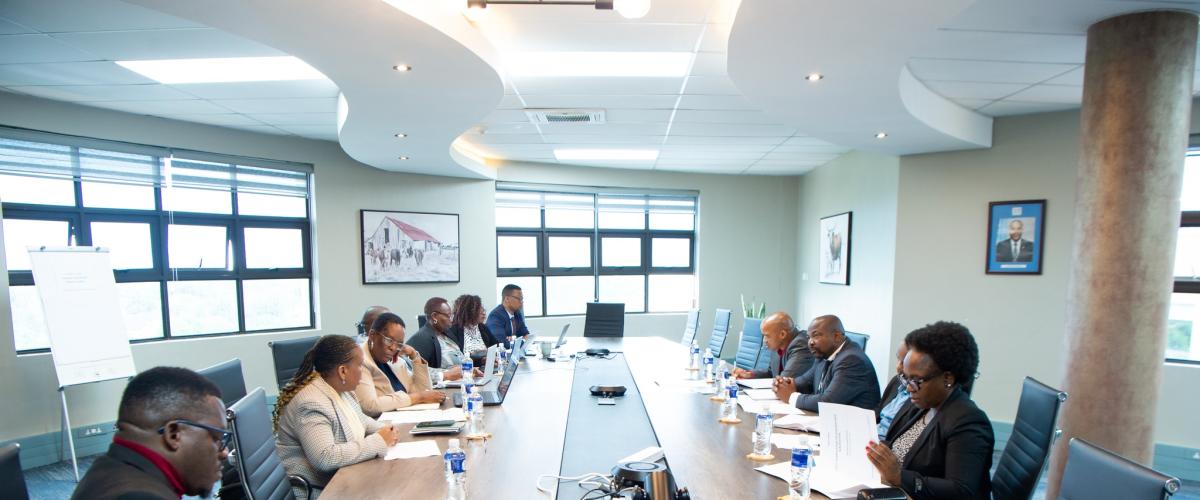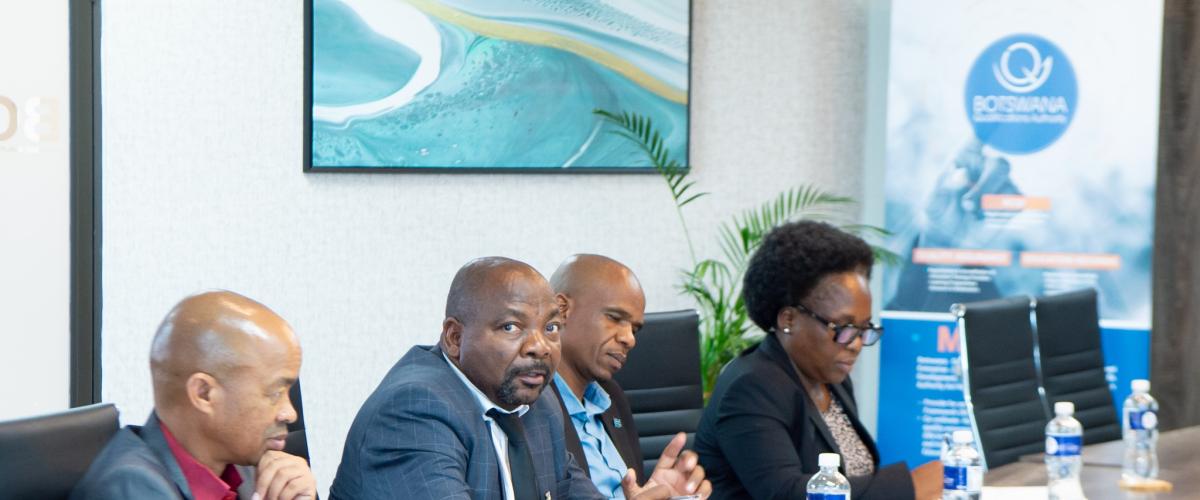In a continued effort to enhance Botswana’s Technical and Vocational Education and Training (TVET) sector, Botswana Qualifications Authority (BQA) held a consultative meeting with the Ministry of Higher Education, specifically the Department of Skills Development. The meeting aimed to explore opportunities for improving the standards and practices governing quality assurance in TVET.
The engagement, which forms part of BQA’s stakeholder collaboration strategy, was an important platform to reflect on the current quality assurance framework, and ensure that the regulatory processes remain responsive, relevant, and aligned with national development priorities. It also highlighted the importance of a shared vision between regulatory bodies and implementation partners in the education sector.
Discussions during the session focused on four key components of TVET oversight:
· The standards applied in the registration and accreditation of TVET Education and Training Providers (ETPs),
· The registration of TVET qualifications in accordance with the National Credit and Qualifications Framework (NCQF),
· The accreditation of learning programmes offered by TVET institutions, and
· The institutional auditing procedures used to assess compliance and performance.
BQA Chief Executive Officer, Professor Botsalano Mosimakoko, emphasized the strategic role that both the Authority and the Ministry must play in supporting the country’s evolving skills development agenda. She noted that as the government intensifies efforts to transform the economy and reduce youth unemployment, the relevance, accessibility, and quality of TVET programmes must be elevated.
We are in a critical phase of national transformation. Our collaboration must go beyond compliance to co-creation. The TVET sector has the potential to become one of Botswana’s strongest engines of productivity, innovation, and inclusion. But for that to happen, our systems, policies, and procedures must be aligned with a shared goal to better serve the learners and the broader economy, Prof. Mosimakoko said.
The Department of Skills Development, which plays a central role in policy implementation, welcomed the opportunity to interrogate the existing Quality Assurance Standards. Representatives expressed a need to refine certain procedures to reflect the dynamic realities of the TVET landscape, particularly in relation to institutional diversity, emerging industry trends, and learner support services.
The consultative meeting concluded with a mutual commitment to deepen collaboration between the two entities, including the establishment of regular dialogue platforms and technical working groups. These platforms will allow for continuous review of quality assurance policies and procedures, as well as co-development of strategic initiatives aimed at uplifting the TVET sector.
In addition, both BQA and the Department of Skills Development agreed to increase their joint engagement with external stakeholders, including industry partners, training providers, civil society, and learners themselves. This inclusive approach is expected to strengthen public trust in the system and ensure that reforms are guided by diverse insights and experiences.
The session also reaffirmed BQA’s role as a facilitator of quality education and training, not merely a regulator. The Authority continues to champion the development of an integrated, credible, and learner-centered education system that meets Botswana’s current and future skills needs.
As the TVET sector evolves, driven by digitalisation, new labour market demands, and global competitiveness, the role of collaborative governance becomes even more critical. BQA’s leadership remains committed to fostering partnerships that ensure continuously improved and transformed in the quality of education.



